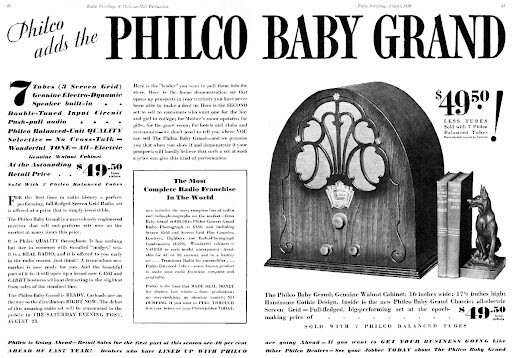It often happens that, when I need to cleanse my palate of the taste of drudgery that this gig engenders, I will browse our local Craigslist. This distraction is not without risk. There is always the clear and present danger that I may acquire something.
Generally, the threat of acquisition is low. Unlike eBay, from which I weaned myself after several obsessive years during which I purchased every antique typewriter I could afford, Craigslist requires some leg-work. With eBay, you point and click and pay online—and before you know it the courier is hurling your fragile treasure at your front porch. As you amass a quantity of such treasures (often for spare parts to repair the original treasures), you may begin to note a lack of floor space. Thus, more than anything, eBay is Langley Collyer’s Revenge.
Craigslist entails direct human interaction and the physical exchange of goods for cash. After you have assured the vendor you are not a robot and have clicked every picture that looks like a motorcycle, you receive contact information and leap in. During the recent brief respite between exciting new COVID variants, I happened upon and fancied a particular item over which I hemmed and hawed for a few days before initiating the Craig-slog.
It was a radio that I could not possibly live without—much like the 50 other radios I own. This one was remarkable, though. It was a restored Philco Model 20, the first of the so-called “cathedral” sets, built in 1930. It was demonstrated to me on-site as working and I left with it.
The Model 20, also referred to as the Baby Grand, was one of the most popular radios Philco ever made. It was enclosed in a beautiful cabinet, and was (for 1930) compact. Some ads refer to it as a “midget” radio, though at 30 pounds and 17 inches tall, it’s a pretty massive midget. Other ads called it a “portable”—meaning that one person (with sufficient strength) could unplug it and move it to another room. (It was movable compared to the earlier “coffin” table radios—such as the Radiola 60—that weighed a ton.)
But the Philco 20 was affordable. At $49.50 (plus tubes) one could pay a dollar down and a dollar a week and own the Baby Grand in about a year, even as the Depression worsened. As such, it sold more than 300 thousand units. It turned out to be a true Depression Buster, putting a world of entertainment into the homes of those who might never otherwise buy a receiver.
Radio, for all its commercial blandishments, brought us together as a country when we most needed that to happen. Stories were told of how one could stroll through the neighborhood on a warm night and listen to a complete program (the usual example given is Amos ’n’ Andy) through the open windows of houses without missing a plot detail. Indeed, listening to that program, written and performed by two white actors portraying black characters, was a nightly ritual for almost anyone (of any race) who owned a radio in the early 1930s. (Today most would recoil at the mere idea of such a show, and with some justification, though George Bernard Shaw said, “There are three things I shall never forget about America: Niagara Falls, the Rocky Mountains, and Amos ’n’ Andy.” I suppose you had to have been there.)
Today, our country is as divided by radio bands as much as it is by political parties. I’ve loved radio my whole life, and used to stay up all night to receive distant AM stations that offered programming unique to their place of origin. It was certainly a hobby for someone without much else going on, but I took delight in it. Twisting the dial these days is painful. The general run of content is calculated to make people furious.
I now spend most of my time on the FM side, near the bottom of the dial, and occasionally detect the whiff of an agenda there, also. I can’t listen endlessly to that, either. I settle into the classics instead—thoughts without words are sweetest.
If I’ve been nostalgic for anything over the past depressing year, it isn’t necessarily the questionable entertainment of the Depression. The music, maybe, yes—but not the unfortunate jokes and attitudes, which are like clothes we’ve outgrown (or which never fit comfortably to begin with). No, what I pine for is just one thing we can all agree is worthwhile, and as we catch each other enjoying it we can fully perceive our respective humanity.
Radio in the 1930s briefly fulfilled that function. Over the past five and a half years, I’ve been hoping that good music might. As it turns out, perhaps rhythm won’t save the world. But something better had, and damned soon.
Andy Senior is the Publisher of The Syncopated Times and on occasion he still gets out a Radiola! podcast for our listening pleasure.





















